Editor’s Note: This post is part of an ongoing multi-part series covering the Millstein Center’s March 1, 2019 conference, “Corporate Governance ‘Counter-narratives’: On Corporate Purpose and Shareholder Value(s).”
By Brea Hinricks
Much has changed in the U.S. since Adolf Berle made his case for shareholder primacy in the early 1930s, and since the Friedman Doctrine rose to power thirty years later. Starting in Berle’s time, robust protections for employees came about as a result of the New Deal (passed thanks in part to Berle’s participation) and the rise of labor unions. Employees had enough bargaining power to ensure that they were treated fairly by their employers and were still protected in an environment that extolled the sole pursuit of profits.
Today, says Chief Justice Leo Strine of the Delaware Supreme Court, the Friedman Doctrine and the sole pursuit of profits within the “rules of the game” seems extreme. But in the context of Friedman’s day, where these substantial worker protections were in place and the “rules” were quite robust, it made sense for enterprise to “stick to its knitting” and leave social protections for the realm of government and regulation.
Chief Justice Strine made these observations at the Millstein Center’s March 1, 2019 conference, Corporate Governance “Counter-narratives”: On Corporate Purpose and Shareholder Value(s). (You can find an audio recording of his full remarks here.) He highlighted a vastly different reality facing today’s workers. Globalization, he points out, has given companies the ability to outsource labor to lower-paid and worse-protected workers abroad, and has allowed companies to forego providing benefits to their employees (if they are considered “employees” at all). Workers have worse job security today than they once did, especially due to automation-related layoffs. Companies create fewer jobs in the communities in which they operate, weakening their social ties and the informal expectation that companies should “give back” at the local level. Today, only a relatively minuscule number of private sector workers belong to labor unions. The “rules of the game” look very different than they did in Friedman’s day.
Continue reading Chief Justice Leo Strine on Berle, Friedman, and Corporate Purpose
